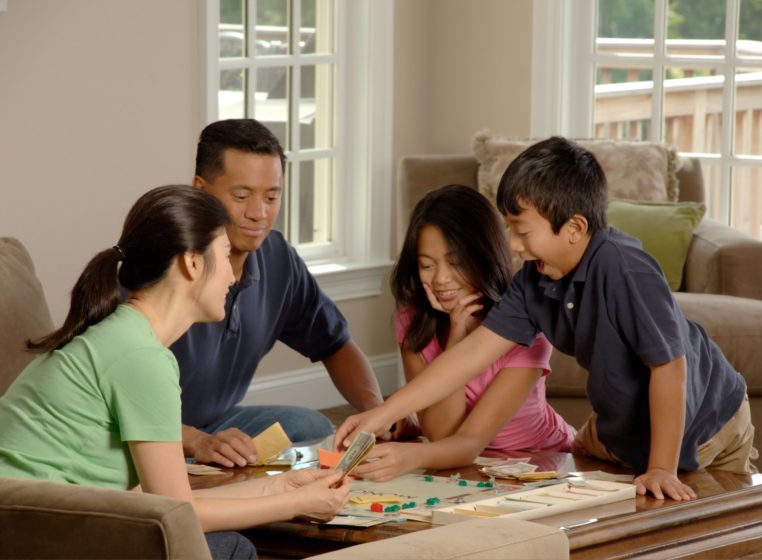You’re about to settle into a round of Scrabble Junior with your child, age seven. Do you give it your best or hold back so as not to win by a landslide? It’s a dilemma almost every parent faces at some point. Here are a few thoughts on how to compete with your kids without defeating or indulging them.
“What’s wrong with letting my child win when we play against one another?”
Nothing – just maybe not every time. That might give your child an inflated sense of how good she is when she faces a true opponent. Kids know, on some level, when you’re letting them win, especially in a game of skill. Although they may appreciate your generosity, they might also feel you doubt their ability. Plus, letting your child lose gives you a chance to see how she copes with it and what kind of help she might need.
“How do I help my child cope with losing?”
It’s perfectly normal to fear the possibility of a meltdown or temper tantrum. When you see one coming, try to step back for a moment and imagine that your child is not your own (perhaps a nephew or a neighbour’s child?). This helps you respond less emotionally. Try to describe what you are seeing without judging: “Not winning makes you angry.” Leave your child some space to be upset and then move on. Later, you can offer words of encouragement that focus on the process rather than the outcome of the game. “It was so much fun when…” or “I noticed that you were so much better at… than last time we played.”
“If I let her win, doesn’t that help to boost her self-esteem?”
Unfortunately, if a child always has to win to feel good about herself, she might actually be at greater risk for feeling bad. Learning how to cope with placing second or even last goes a long way toward boosting a child’s self-esteem. Children who know their own strengths and how to focus on their personal best often develop a healthier sense of self-worth than those who always need to win.
“Is it even fair for me to play competitive games with my child?”
Here’s the deal. Most games are competitive. Kids love competition, and they need to learn how to deal with it – that means winning and losing. Yes, you have an unfair advantage, so why not “dumb down” your playing a bit – don’t completely throw the game, but don’t intentionally lose it either. Another option is to balance the odds by creating better matched teams – two children against one adult, or a parent and child playing against the other parent.
Not everything has to be competitive. You can play games where you’re working toward a common goal, or games of chance, such as Chutes and Ladders, where there is no skill or experience necessary. There’s nothing like winning fair and square to make a kid feel terrific.
